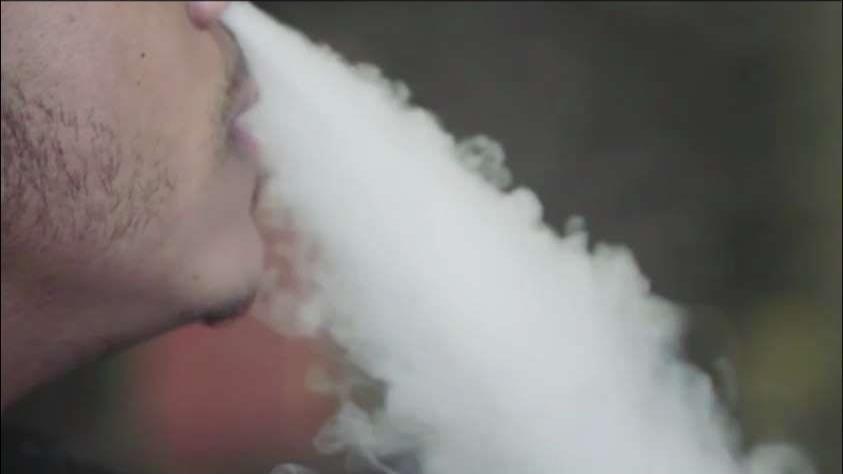National vaping association leads lawsuit against Mass. ban
Just days after several Massachusetts vape shop owners sued the state for enacting a four-month ban on sales of all vaping products, the industry’s national trade association has asked a federal judge to immediately end the ban.
The Vapor Technology Association (VTA) filed a lawsuit on Tuesday in U.S. District Court in Boston against Gov. Charlie Baker (R-MA) and Public Health Commissioner Dr. Monica Bharel for damages being caused by the four-month ban on vape products and devices, including marijuana and nicotine.
The VTA – which was joined in the lawsuit by along four other vaping store owners - are requesting that the court “enjoin and declare as unconstitutional the emergency order issued by Commissioner Bharel that has shuttered and will irreparably destroy Massachusetts’ $331 million nicotine-vapor products industry and the livelihoods of the 2,500 workers that it employs.”
The lawsuit alleges that, unless the statewide ban that was announced on Sept. 24, is halted, it will destroy the state’s nicotine vapor products industry and cause “irreparable harm” to many law-abiding retailers, manufacturers, and distributors.
The VTA says in the complaint that the governor's ban “makes no distinction between the black-market vaping products at the center of (the) outbreak and the FDA-regulated products produced by legitimate manufacturers. And, while purporting to target the problem of youth vaping, the emergency order contains no provisions expressly directed at children. Instead, the emergency order implements a categorical ban on the sale or display of vaping products to all persons, threatening to destroy an entire industry and the livelihoods of Massachusetts citizens.”
The association also contends that the ban can create a public health risk by eliminating what it says is a safer alternative to tobacco, and pushing those who want vaping products to seek them out on the black market.
That is similar to how Massachusetts Cannabis Control Commissioner Shaleen Title -- who was appointed by Gov. Baker – reacted to the ban late last week. She said the ban was a "terrible decision” which could lead people to get them on the unregulated market.
The four other plaintiffs in the lawsuit are Ian Devine of Mansfield, who owns Devine Enterprise, Inc. which operates stores in Mansfield and Walpole; Christopher Austin of Merrimac, the owner of four vaping-products stores in New Hampshire, including two that are near the Massachusetts border; and Adam Webster, a Connecticut resident and owner of The Steam Co. LLC stores in Connecticut. Mr. Webster derives income from the sale of nicotine-vapor products he ships to Massachusetts.
A spokesman for Gov. Baker, Terry MacCormack, told The Boston Globe that he cannot comment on a pending lawsuit.
GET FOX BUSINESS ON THE GO BY CLICKING HERE
The Centers for Disease Control and Prevention and the FDA are investigating the cause of a multi-state outbreak of serious lung disease that has been blamed for the deaths of 15 people and hospitalized hundreds of people in 46 states and the U.S. Virgin Islands.
The governor's ban “makes no distinction between the black-market vaping products at the center of (the) outbreak, and the FDA-regulated products produced by legitimate manufacturers."
There have been no vaping-related deaths reported in Massachusetts, but there have been dozens of cases of the severe lung disease, including four people ages 17-50, at UMass Memorial and St. Vincent hospitals in Worcester.
The VTA is citing the CDC’s report on vaping and e-cigarette-related illnesses on Sept. 27, which stated that their latest findings acknowledge that products containing THC play a role in the outbreak. No single product or substance has been linked to all lung injury cases, the CDC reported.
The VTA lawsuit maintains that the CDC has observed the likelihood that some patients may not have disclosed to health officials their THC use because of its legal status in some states. The complaint also says the FDA has theorized that the illness might be caused by the addition of Vitamin E acetate, used on the black market to thicken THC oil.
The Massachusetts Public Health Department has received 10 probable or confirmed cases of lung illness caused by e-cigarette products.
The ban is scheduled to be in effect until Jan. 25, 2020, and will be enforced by state and local officials, and if businesses don't comply, store owners could face fines, product seizures, or other penalties.
The VTA also filed a lawsuit on Sept. 25 against New York’s ban on the sale of flavored vaping products, which was announced 10 days prior.
VTA was joined in their lawsuit by Benevolent e-Liquids, Inc., a New York manufacturer, and Perfection Vapes, Inc., a New York retailer, which seeks a declaratory judgment, a temporary restraining order, and a preliminary and permanent injunction in the Supreme Court of the State of New York for Albany County against the New York State Department of Health (NYSDOH) and Public Health and Health Planning Council (PHHPC) to eliminate the ban.
"Not only will the State's arbitrary and misguided measure do nothing to address the marketing issues about which the State has complained, it is one of the worst examples of government overreach,” Tony Abboud, Executive Director of the Vapor Technology Association, said in a statement when the New York lawsuit was announced. “Banning flavors for vapor products, while leaving all flavored combustible products on shelves can only entice all users to smoke more. In addition, this action completely ignores the fact that the New York State Department of Health has found that the overwhelming majority of the illnesses it is investigating are directly tied to black market THC products and the presence of Vitamin E acetate in those products, something that the NYSDOH said it did not find in any of the nicotine products it tested."
The VTA said in the filing that New York’s arbitrary and capricious Emergency Rule crosses the line from "administrative rule-making to legislative policy-making” and violates the clear separation of powers set forth in the New York constitution.




















